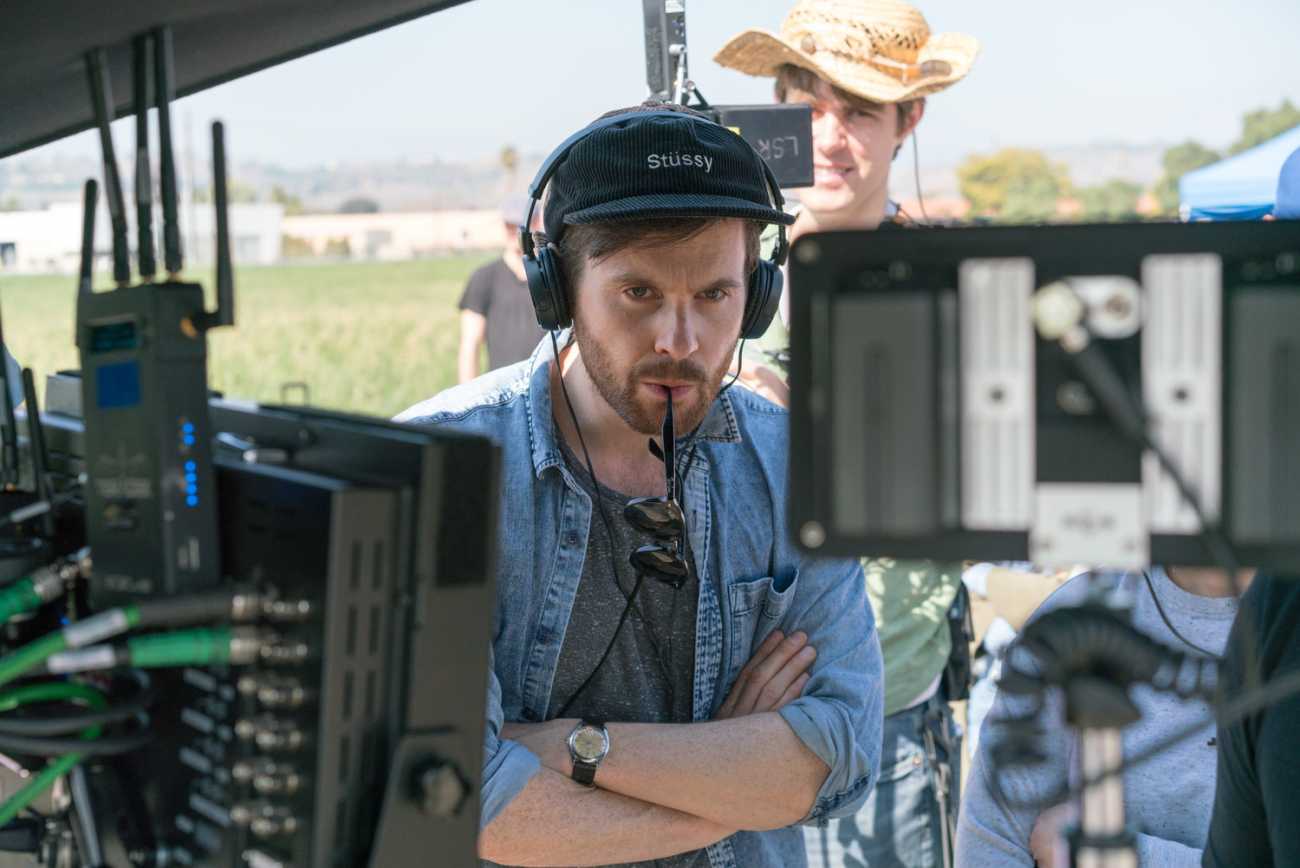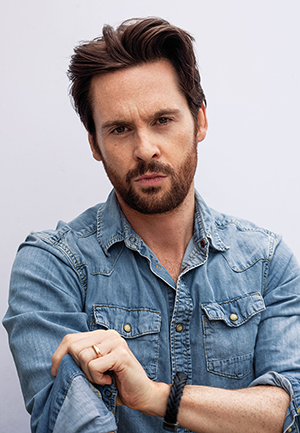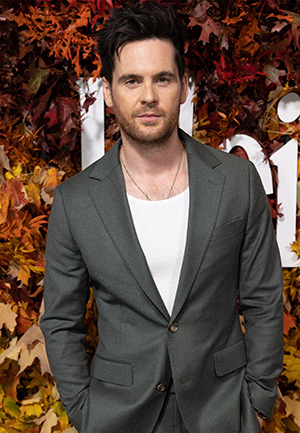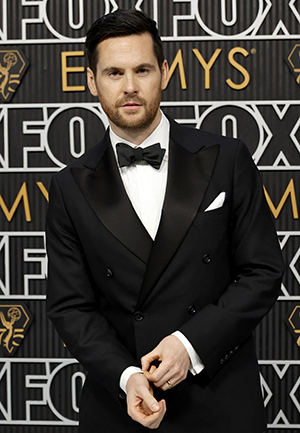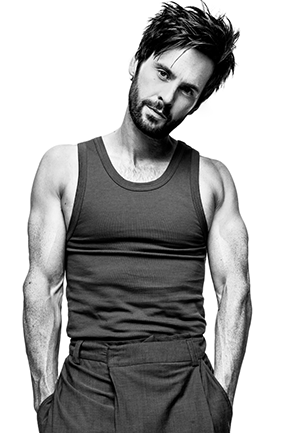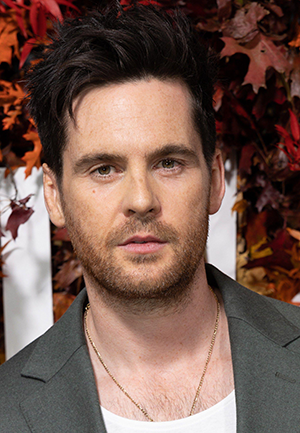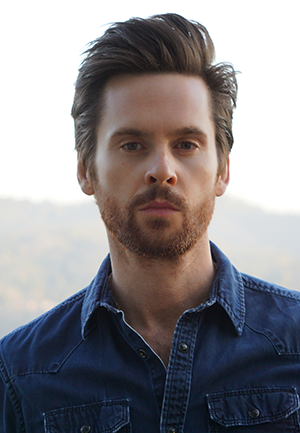The official website for The Toll Road has an interview with Tom about making the short film, as well as an extended statement from him as a director. Read them in full on the website. Tom chats about Lizzy Caplan's character's eyebrows, as well as the serious business of making The Toll Road. The official Twitter account for The Toll Road shared a new behind the scenes photo of Tom Riley and Lizzy Caplan.
How did The Toll Road come to you?
My friend Richard Galazka had written it as a palate cleanser in between rewrites of the feature he had in development. I read it, and was so drawn in by the unexpected characters and the deceptively simple nature of the story that I felt determined to get it made. Originally it was set in England, and we developed it with that in mind. When we partnered with the hugely generous and supportive Kids at Play, and in response to the political upheaval America was undergoing - we realised the best way to tell this story was by relocating it and doing another polish to make the subtler political elements sing. Richard turned that over in a few days and we then raced to the finish line - finally having the momentum (and the time) that had eluded us over three years of development.
Why were you so drawn to it as a piece?
I’ve written about this in my Director’s Statement, so I won’t go over old ground. But fundamentally the gradual erosion of nuance in favour of reductive black and white thinking over the last few years felt to me like ground zero for so much of what we’re seeing now played out on the world stage. The script combatted that head on - in a way that didn’t just add to the noise, but rather subtly encouraged the viewer to invest in the more human aspects of this collapse, whilst simultaneously providing an entertaining diversion from the collapse itself.
How did you decide on the look of the film?
I hired a brilliant DP in Amanda Treyz, and presented her with a whole bunch of references in the hope that she would be able to translate that into the look in my mind’s-eye. She killed it. Not only that, but she was a superb partner in crisis when we realised our shot-list was wildly ambitious for 24 hours of shooting time, and sat together for hours on end, condensing it down to the most precise but still satisfying list possible. The bare necessities. It meant we both came to set more prepared than we might have done otherwise, and I believe the film is actually better for the lack of extraneous material.
How did you decide on the music?
I always wanted the film to feel timeless, both to reiterate the idea that what is currently being faced has been something humans have always struggled with, and which civility has kept in check - and to provide a reason for the main characters’ willingness to seek out extreme solutions to relatively small problems. They are removed from societal context - both in time and place (the endless road and lack of clear location is intentional) - and as a result only have their individual echo chambers (which at one point in the film becomes literal) to encourage or discourage their actions. Therefore the songs that soundtrack the film, just like the Discman that Emily uses to listen to one of them, are sourced randomly from across the last century. I asked my insanely talented friend Bear McCreary - who I had worked with on a show a few years back - to score it for us, fully expecting him to be far too busy, but he graciously carved out time and totally understood what I was going for. His score manages to blend seamlessly in with the song choices and the feel of the movie, whilst at the same time being very much its own thing.
What was it like to direct your wife?
We were supposed to have three days to shoot this, but she refused to come to set for the first day because she didn’t like her character’s eyebrows so we lost a whole day. Regardless, she was a delight, excavating a side of her talents that she’s rarely been able to show off in her previous work. And as a producing partner, she’s both endlessly patient and a real source of creative inspiration. But obviously those Day One Eyebrows were magnificent and I mourn the loss of them in our film.
What is the one thing you’ll take away from this?
Trust in your team. Crews work insanely hard and are prepared to work even harder if you give them space to take ownership of what you are creating with them. It was an intense and rewarding experience and I count myself so lucky to have been able to share all of it with such a passionate and talented group. The other thing I took away from it were those eyebrows, which I intend to put under Lizzy’s pillow in a year’s time and continue my reign as the Number One Prahnkster.
Our director, Tom Riley, and lead actress, Lizzy Caplan. This booth was both a location, and her trailer. #TheTollRoad pic.twitter.com/mCl1SeAgV4
— The Toll Road (@thetollroadfilm) December 4, 2018
